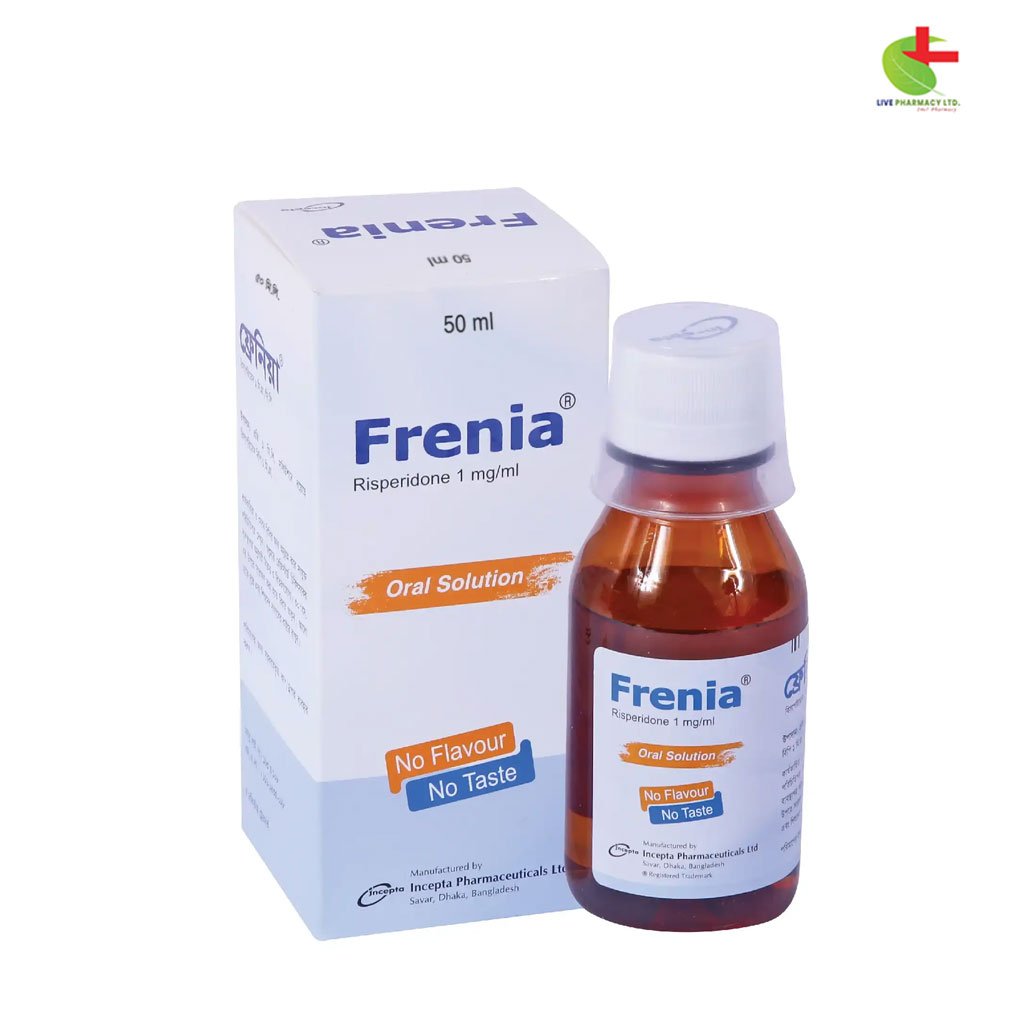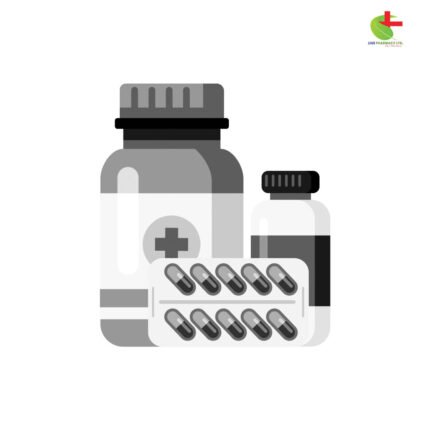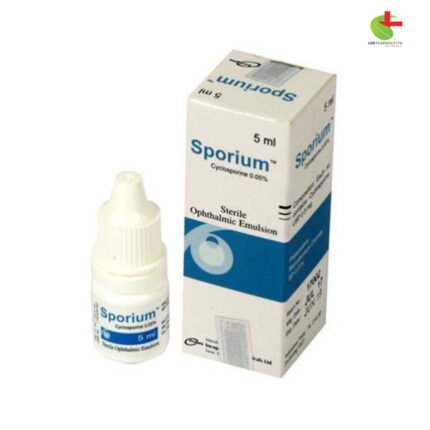Frenia
165.00৳ Bottle (50ml)
- Frenia tablets are indicated for the treatment of acute and chronic psychoses, mania, and schizophrenia.
- They contain Risperidone, a selective monoaminergic antagonist that effectively manages psychiatric symptoms with a favorable side effect profile.
- Dosing varies based on the condition and patient characteristics, with careful adjustments for specific populations.
- Consult a healthcare professional before use to ensure safe and effective treatment.
 Brand
Brand
|
Incepta Pharmaceuticals Ltd |
|---|---|
 Generics
Generics
|
Risperidone |
 Type
Type
|
Oral Solution |
Indications
Frenia tablets are prescribed for the management of:
- Acute and chronic psychotic disorders
- Episodes of mania
- Schizophrenia
Consult a registered healthcare professional before using this medication.
Pharmacology
Risperidone functions as a selective monoaminergic antagonist, exhibiting a strong affinity for serotonin 5-HT2 and dopamine D2 receptors. Additionally, it binds to alpha-1 adrenergic receptors and, to a lesser extent, to H1 histamine and alpha-2 adrenergic receptors. Importantly, risperidone does not interact with cholinergic receptors. As a potent D2 antagonist, it alleviates positive symptoms associated with schizophrenia while minimally affecting motor activity. The balanced antagonism of serotonin and dopamine may lower the risk of extrapyramidal side effects and expand its therapeutic effects to encompass negative and affective symptoms of schizophrenia.
Dosage & Administration
For Psychoses:
- Initiate treatment with 2 mg, divided into 1-2 doses on the first day, followed by 4 mg in 1-2 divided doses on the second day. (Consider slower titration for some patients.)
- Typical daily dose ranges from 4-6 mg; doses exceeding 10 mg should only be considered if the benefits surpass the risks (maximum of 16 mg daily).
- For elderly patients or those with hepatic or renal impairment, start with 1 mg daily in two divided doses, increasing in 1-2 mg increments twice daily.
- Not recommended for children under 15 years.
For Mania:
- Start with 2 mg once daily, increasing if necessary by 1 mg daily; the usual daily dose ranges from 1-6 mg.
- For elderly patients or those with hepatic or renal impairment, initiate with 1 mg daily in two divided doses, increasing in 1-2 mg increments as needed.
For Schizophrenia:
- Begin treatment with 1 mg twice daily, with increases of 1 mg twice daily on the second and third days as tolerated, aiming for a target dose of 3 mg twice daily by day three.
- Further adjustments, if needed, should occur at intervals of no less than one week, with recommended increments or decrements of 1-2 mg.
Consult a registered healthcare professional before using this medication.
Interactions
Frenia may reduce the efficacy of levodopa and dopamine agonists. Long-term use of carbamazepine can lower the plasma clearance of Frenia, while clozapine may also decrease its clearance. Additionally, Frenia may enhance the effects of specific antihypertensive medications.
Contraindications
Risperidone is contraindicated for individuals with known hypersensitivity to the drug.
Side Effects
Common side effects may include insomnia, agitation, anxiety, headaches, and less frequently, drowsiness, impaired concentration, fatigue, blurred vision, constipation, nausea, vomiting, dyspepsia, abdominal pain, hyperprolactinemia, urinary incontinence, tachycardia, hypertension, edema, rash, rhinitis, cerebrovascular accidents, neutropenia, and thrombocytopenia.
Pregnancy & Lactation
Although animal studies did not demonstrate direct reproductive toxicity from Risperidone, some indirect effects related to prolactin and CNS activity were noted. No teratogenic effects were observed in any studies. However, the safety of Risperidone during human pregnancy remains unverified. Both Risperidone and its metabolite, 9-hydroxyrisperidone, are excreted in breast milk; therefore, breastfeeding is not recommended for women on this medication.
Precautions & Warnings
Caution is advised for individuals with pre-existing cardiovascular conditions. Discontinue use if tardive dyskinesia symptoms emerge. Special care should also be taken for patients with renal or hepatic impairment, the elderly, those with epilepsy, Parkinson’s disease, and during pregnancy.
Therapeutic Class
Atypical neuroleptic agents.
Storage Conditions
Store below 30°C, away from light, and out of reach of children.













Reviews
There are no reviews yet.